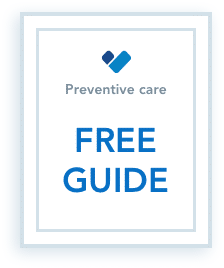Your quick guide to HMO health insurance
Health insurance plans come in a variety of shapes and sizes. Some health insurance plans are better for healthy single people without any children, and some health insurance plans make more sense for people with chronic medical conditions, or dependent family members. One of the most popular health plan types is a Health Maintenance Organization, or an HMO. With an HMO health insurance plan, you can access healthcare providers and medical services within a network of doctors. If you go outside of the HMO’s network of providers, you must cover your own medical expenses. (With the exception of medical emergencies.) This makes HMO plans affordable, as long as you stay in-network.
How does an HMO plan work?
Generally, with HMO health insurance, you must choose a primary care physician or provider from the provider network approved by your HMO health plan. HMO health plans typically cover a broad range of preventative services. These can include well-woman visits, flu shots, and blood pressure screenings, to name a few. They also cover most medical services provided by a primary care doctor. To visit a specialist, such as an allergist, a dermatologist, or a cardiologist, the primary care provider must refer you to in-network specialists for healthcare services.
If you’re in an emergency situation, or go outside of the HMO network for healthcare, you may need to file a claim to be reimbursed for any necessary medical expenses. Although, you might end up paying out-of-pocket.
How expensive is an HMO?
HMOs vary, but they tend to be the most affordable type of health insurance plan. Usually they come with lower deductibles and premiums than other plans. However, your healthcare costs will increase if you go to a specialist outside of your HMO’s approved network.
What services are covered?
HMO health insurance plans typically cover a broad range of preventative services, such routine screenings, vaccines, and reproductive healthcare visits for women. They also cover most routine medical services provided by a primary care doctor. Additionally, some HMO plans have restrictions on how many times you can visit a doctor in a given year, before incurring additional healthcare costs.
Do I use a primary care physician?
You must have a primary care physician or doctor if you have an HMO plan. This primary care physician will refer you to in-network specialists as needed. But all health services must go through your primary care physician to avoid additional healthcare costs. To choose your primary care doctor or physician, you’ll want to go through a provider list. This is usually located on your health insurance company’s website.
How do I see a specialist with an HMO plan?
Your primary care physician can refer you to in-network specialists when you need them. However, if you wish to see a specialist outside of your HMO’s network, or don’t run it through your primary care physician, you may receive a penalty. This could mean paying for the full cost of the appointment out-of-pocket, and any care related to this appointment.
How do I fill my prescriptions with an HMO health plan?
If your primary care physician writes you a necessary prescription, it should be covered. You can also check the cost outlined in your HMO’s drug formulary. Where you can fill your prescription may vary based on your health insurance plan. For example, Kaiser Permanente has their own pharmacies and mail order refill service. While other HMO plans may partner with major retail pharmacies like Walgreens, CVS, or Walmart. However, prescriptions requested by a specialist outside of your HMO’s network may incur additional healthcare costs.
When will I need to file a claim with an HMO?
You will not need to file claims for in-network services or those requested by your primary care physician. If you go out of network to see a specialist or receive any type of medical service not requested by your doctor, you will need to file a claim if you wish to be reimbursed.
What is a PPO health insurance lan?
PPO stands for Preferred Provider Organization. A PPO health insurance plan offers more flexibility for customers, as you get to choose your own specialists and providers. PPO insurance plans cover both in-network and out-of-network doctors and hospitals. So you can go with healthcare providers in your plan’s network, or outside if you so desire. For PPO customers looking to save money, choosing an in-network healthcare provider often comes at a lower cost, depending on the health insurance company’s policy.
HMO vs. PPO plans: A side-by-side comparison
Both HMO and PPO plans offer a full range of healthcare coverage, and in-network care, but there are some notable differences.
An HMO plan may be the best fit…
If you’re someone who doesn’t travel often, and not likely to need a specialist, an HMO plan might be a better choice. You are likely to pay lower premiums and deductibles. In fact, HMOs overall are typically a more affordable option when compared to a PPO plan. However, costs can add up if you unexpectedly need to see an out-of-network specialist or need medical care outside of the network services offered by your health plan.
Unlike an HMO, one key feature of a PPO plan is that they don’t require you to choose a primary care doctor or get a referral before seeing a specialist. This might be important if you have a preferred out-of-network specialist. That way you likely won’t pay out-of-pocket costs to see them. People who travel often may also want to go with a PPO health plan, as they’ll be able to see doctors outside of their network.
When it comes to Medicare, customers have two choices. 1. An HMO health insurance plan. 2. Or a PPO (Medicare Advantage) plan. If you’re eligible for Medicaid, most plans are HMOs.
Other types of plans: EPO & POS
While HMOs and PPOs are two of the most common types of plans, there are other types of health insurance plans you can choose from, depending on your circumstances.
EPO health insurance plans
Exclusive Provider Organization health plans, or EPOs, cover a restricted network of medical professionals and healthcare facilities. With this type of plan, you do not need to choose a primary care physician or receive referrals to see a specialist, but you must stay within the network. If you go to a doctor or healthcare provider outside of the EPO network, you’ll have to pay for everything yourself.
In one sense, HMO plans and EPO plans are quite similar. However, an EPO is better for those who want more freedom to go see specialists without discussing it with a primary care provider first. Whereas customers of HMO plans must receive a referral to an HMO network-affiliated doctor or specialist.
An EPO is often a more affordable health plan than an HMO or PPO in the beginning. But out-of-pocket costs can create a financial burden if you need to see a doctor or specialist outside of the EPO network.
POS health insurance plans
With a Point of Service or POS plan, you must have a network provider who coordinates all your medical needs. With this type of health insurance plan, your primary care provider can refer you to both in-network and out-of-network doctors. Although, just like the other health plans, the latter typically costs more.
A POS plan is like an expanded HMO. For customers who prefer the centralized care that an HMO offers, but also want the flexibility to visit out-of-network healthcare providers and specialists, this type of plan may be a great choice.
When choosing a health insurance plan, it’s important for you to consider: 1. How frequently you and your family will visit the doctor. 2. What kind of prescription medications and medical services you need. 3. How much you would like to or are able to pay for monthly premiums. 4. And finally, how much you can pay for out-of-pocket costs if you go out-of-network. Factoring in all these things will help you determine whether an HMO, PPO, EPO, or POS plan is right for you.
You can enroll in health insurance through the Marketplace during the Open Enrollment Period, beginning November 1st, 2019, or during a Special Enrollment Period if you qualify. Until then, you can compare plans and prices with HealthSherpa’s comparison tool to find the best plan that fits your healthcare needs.
Originally published on Apr 9, 2018














[…] who provides more extensive eye care, like treating disorders and performing surgeries. Check your health insurance plan to make sure eye exams are covered and your eye doctor is in your […]